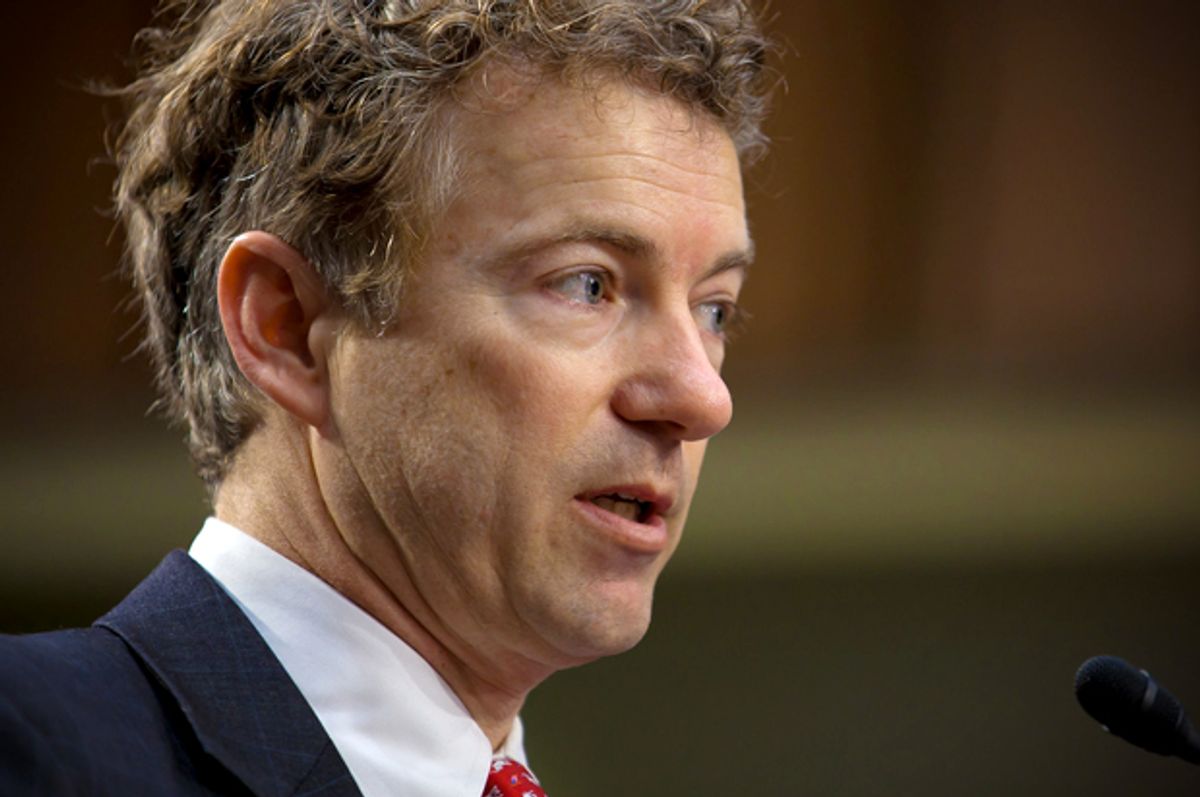As he's made his way, methodically and relentlessly, toward launching a 2016 bid to be the Republican Party's nominee for president, Kentucky Sen. Rand Paul has had to "evolve" on some issues while disowning his prior stance on others.
One of the areas where he's most conspicuously given himself a makeover is foreign policy. Paul used to be the standard-bearer for the right's anti-interventionists and opponents of empire, but lately he's been sounding more and more hawkish, and less and less like the smoother, more accessible version of his father that many conservative doves hoped he would be.
Yet according to reports, these increasingly crestfallen supporters have found themselves a silver lining: While Paul will support the president's plan to increase the number and intent of airstrikes against ISIS, he still opposes that other major request of the hawks, arming the "moderate" Free Syrian Army (FSA).
The news came via the Huffington Post, whose reporter was told by Paul senior aide Doug Stafford that the senator "believes arming the same side as ISIS was and is a strategic error and [he] would oppose such action."
By dissenting against arming the rebels — which is all he can do, given that Obama is not asking for, and Congress is not demanding, official authorization to fight ISIS — Paul is siding with those who argue that the U.S. should be less willing to supply foreign fighters with weapons, lest they one day fall into the hands of America's enemies. President Obama was formerly the most influential member of this group, but has shifted position in response to heightened fears of a future ISIS attack.
Despite the words of Paul's spokesperson, however, it should be noted that Paul did not emphasize his concerns about the FSA when he appeared on Sean Hannity's Fox News show after the president's speech. Rather than burnish his dovish credentials, Paul instead focused on the element of the ISIS strategy he agreed with, and then criticized the president on constitutional grounds.
Obama's not seeking an authorization vote from Congress, Paul said, "[didn't] in any way represent what our Constitution dictates nor what our Founding Fathers intended." The march to the White House continues.



Shares